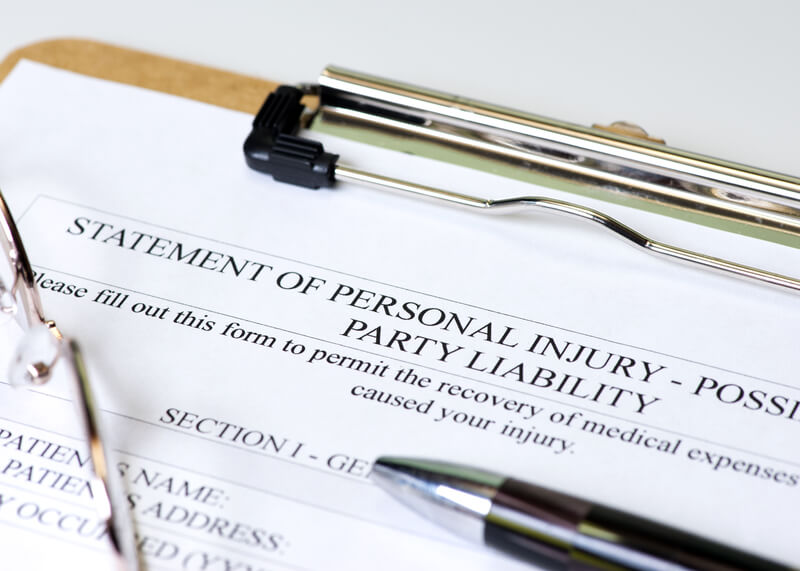A traumatic brain injury, or TBI, has the power to rewrite who we are in a moment. It may affect our sensory perception, our ability to communicate and even our personality. And while it often involves complex acute care, especially for moderate and severe traumatic brain injuries, it’s not a single medical event. Even after rehabilitation, brain injuries sometimes result in chronic conditions, like epilepsy or vertigo, and require long-term, personalized services and support.
Because TBIs differ so much from case to case—in outcomes, rehabilitation needs and continued care—they also require an expert legal approach. Insurance companies, understanding the financial crisis even a mild brain injury can force a family into, tend to offer quick settlements.
But TBIs require sustained resources, and settlements must account for more than future medical expenses alone. Quantifiable needs, like home modifications or adaptive devices, can increase safety. Job changes or new educational goals require support but can help a person with a brain injury regain independence. And compensation for intangible losses through pain and suffering can fund the resources needed to set new goals and celebrate when they’re achieved.
Whether you’re living with a brain injury or you’re advocating for a family member or loved one with a TBI, it’s helpful to understand the legal hurdles of brain injury cases, plus gain an understanding of future care needs and treatment.
Types of traumatic brain injuries
TBIs happen when there’s a sudden impact or blow to the head that damages the brain. Falls account for nearly 30 percent of TBI-related deaths, while car crashes account for nearly 17 percent, according to a CDC surveillance report.
Types of brain injuries, which may be classified as mild, moderate or severe, can happen in two ways:
- Closed brain injuries (also known as closed head injuries) occur when a rapid forward-backward movement leads to bruising or tearing of delicate brain tissue or blood vessels. Most car accident or truck accident-related TBIs are closed-brain injuries, as are many falls. Assaults, including intimate partner violence and shaken baby syndrome, can also lead to closed TBIs.
- Penetrating brain injuries happen after a break in the skull, often because of a gunshot. In addition to the challenges faced by a severe TBI, penetrating injuries also have a high potential for infection.
What are the symptoms of a TBI?
While it’s helpful to understand the symptoms of a TBI, one thing is worth noting from the start: Any head injury is serious. Any severe blow to the head or sudden impact requires medical attention.
After an accident, EMTs will often check for TBI symptoms on the scene, testing communications abilities and physical responses. In the emergency room, providers will use imaging technologies, like CT scans, to identify bleeding or brain tissue damage.
Unfortunately, brain injuries often go unreported and untreated. Kids may not always be able to express their symptoms. Older adults or their caregivers may mistake the signs of a TBI for other age-related issues, like motor challenges or dementia. And many people simply push past red flags, overwhelmed after a car crash or fall.
Rapid diagnosis and targeted treatment based on the severity of the injury are critical first steps toward a better outcome, whether it’s a mild TBI or concussion, a moderate TBI or a severe TBI.
Symptoms for mild TBIs may include:
- Persistent headaches
- Nausea
- Speech issues
- Dizziness
- Fatigue
- Sleep changes
- Blurred vision or sensitivity to light
- Ringing in the ears
- Concentration issues
- Heightened anxiety
- Mood changes
- Loss of consciousness
Symptoms for moderate or severe brain injuries may also include:
- Loss of consciousness for several minutes or more
- Memory loss
- Persistent nausea
- Seizures
- Dilation of pupils
- Extreme confusion
- Slurred speech
- Numbness
- Clear fluids draining from ears or nose
- Difficulty waking
[Source: Mayo Clinic]
With a moderate or severe TBI, prompt treatment can be life saving. Doctors may perform emergency interventions like surgery to remove clotted blood or relieve fluid, or they may induce a coma to preserve the brain’s oxygen resources. With mild TBIs and concussions, treatment soon after the accident can help injured people get a clear picture of their recovery needs and make sense of confusing symptoms like anxiety or the inability to concentrate.
Receiving medical care soon after an accident also builds a strong basis for a personal injury case. Insurance companies sometimes try to argue that TBI symptoms are unrelated to an accident, or they may try to claim the injury is not serious if it didn’t require care right away.
Long-term care for TBIs
After emergency treatment and any necessary medical treatment, people with brain injuries begin the sometimes life-long process of managing chronic conditions associated with their TBI.
For many, this may start with rehabilitation, where the injured person can work with physical therapists, occupational therapists, counselors, recreational therapists, vocational counselors and speech therapists to set goals and better understand what modifications they’ll need for greater independence. Peer support often plays a huge part in such programs, and newly built peer networks can continue to help people with TBIs long after the injury.
Rehabilitation brain injury victims face:
- Cognitive issues, including memory problems or struggles planning or problem solving
- Motor challenges, including tremors, weakness or balance problems
- Sensory issues, including loss of body awareness, ringing in the ears or double vision
- Communications challenges, including speaking, understanding, reading or writing
- Emotional challenges, including inappropriate behavior and outbursts
- Psychological challenges, including depression, anxiety and mood swings
Due to their developing brains, kids with TBIs may see symptoms change or become more pronounced over time. With emotional and behavioral changes a possibility, families benefit from establishing a strong peer support group early on. In TBI rehab programs, families might work with therapists and schools to develop individualized education plans (IEPs) or learn about adaptive sports options. Some rehabilitation programs geared toward teens even draw in siblings and friends to the healing process.
In the most severe cases, brain injury can result in altered consciousness—a coma, vegetative state or minimally conscious state. While not every person recovers full consciousness, dignified care can help maintain the person’s physical health and provide them with sense-stimulating engagement, like conversation or music.
Factors to consider when hiring a traumatic brain injury lawyer
TBI cases are among the most complex a personal injury attorney will face in practice. It takes a long time—years of working with clients, providers and insurance companies—to understand the medical and legal complexities of these cases. And while TBIs often result in overwhelming early medical costs, quick settlements rarely cover a full lifetime of care, or adequately compensate for future lost income.
Simply put, inexperienced attorneys should not accept these cases. And, because personal injury attorneys typically work under a contingency arrangement—meaning they are not paid until reaching a settlement—families can afford to choose a brain injury attorney with more experience, plus the tenacity and empathy to guide them through the life-changing process.
When you meet with your TBI attorney, you may want to ask:
- How many cases like this have you handled?
- How much of your law firm practice is devoted to TBIs and other catastrophic injuries?
- Will you handle this case personally, or will you refer it out?
- What outcomes have you achieved in other TBI cases?
- Have you ever needed to take a TBI case or other catastrophic injury case to court?
- How involved are you in the TBI community, and how do you stay up-to-date on medical advances in TBI treatments and outcomes?
If you experience a TBI and you’ve been involved in a previous accident, your case will have an additional layer of complexity. Your TBI attorney will need to demonstrate that physical or mental symptoms were made worse by the TBI, or that the TBI symptoms are separate from your preexisting health issues.
Many individuals with TBIs can take an active role in their legal claim and should seek out an attorney who respects their abilities and challenges. An attorney should be willing to make necessary accommodations (for example, meeting clients at home or sharing verdict updates in a way that’s adapted to their sensory needs).
However, if your family member’s injury is severe and they do not have the ability to make a decision regarding an attorney or the direction of the case, you’ll need to pursue the legal instruments that will allow you to make those decisions for them.
In the case of total incapacity, this might mean legal guardianship. When a person is aware of their incapacity and their need for assistance, it might mean seeking a written power of attorney. In all cases, a personal injury lawyer should have experience handling the legal and ethical complexities of TBI cases, and should understand his or her role in protecting the best interests of the client.
Talk to a traumatic brain injury attorney today
TBIs are overwhelming medical, financial and emotional events. But they also require endurance. It takes time and patience to understand the full scope of a secondary brain injury, and it sometimes takes a lifetime of care, advocacy and support to live with TBIs as a chronic condition. At Litner + Deganian, we understand the complexities of these cases, and we dedicate our knowledge and our firm’s resources toward pursuing fair compensation and a high quality of life. Give us a call to talk through your options in a free consultation.












